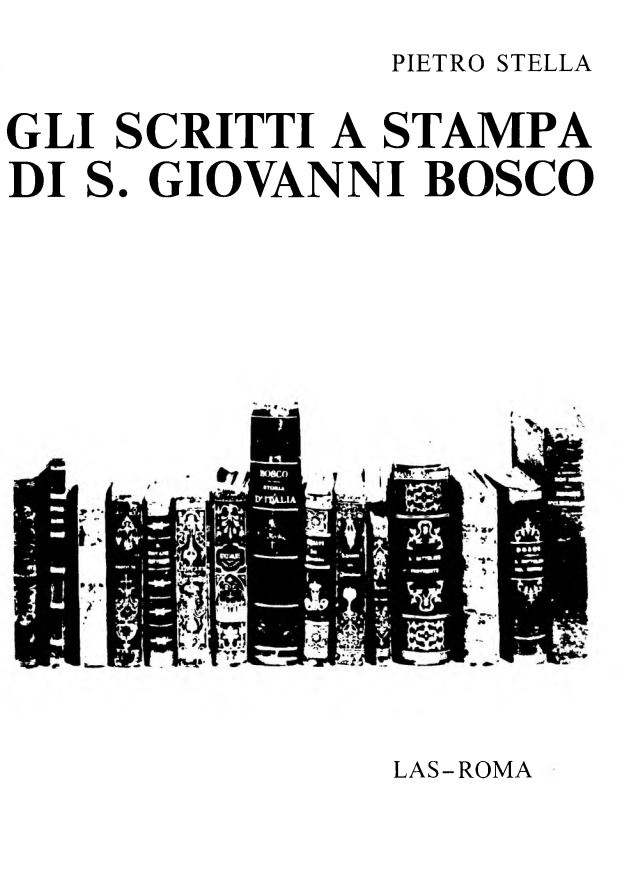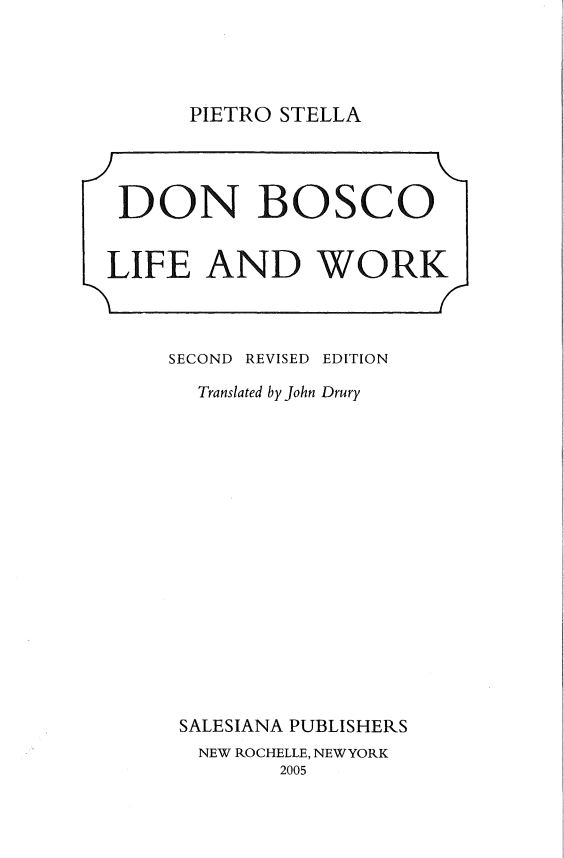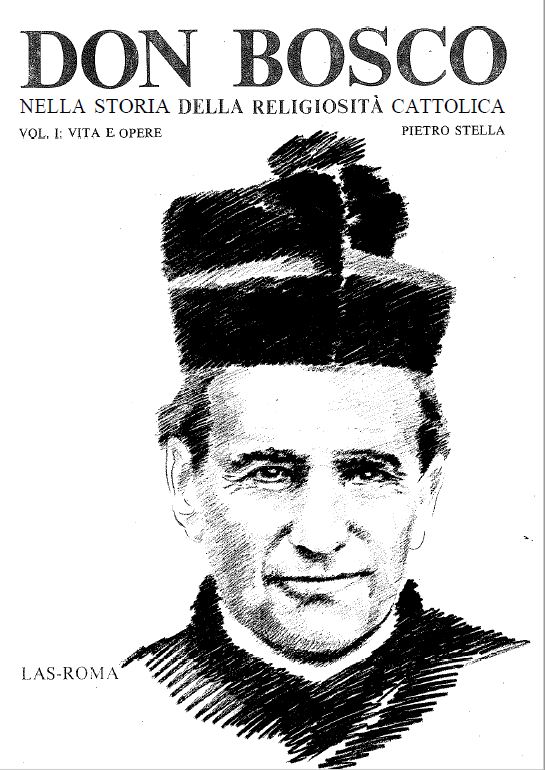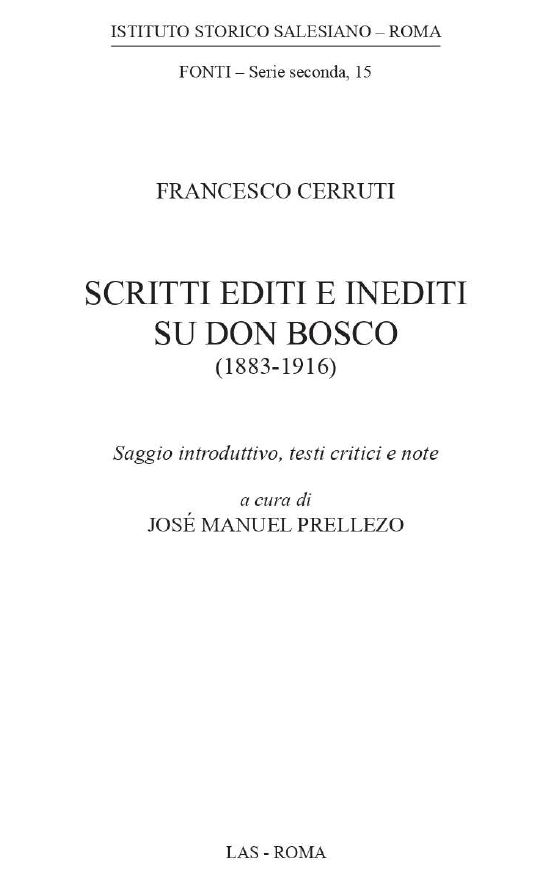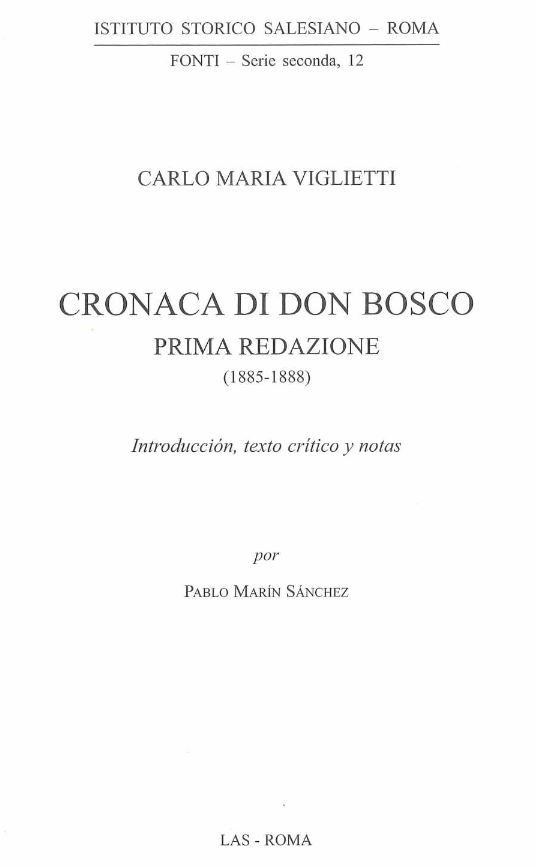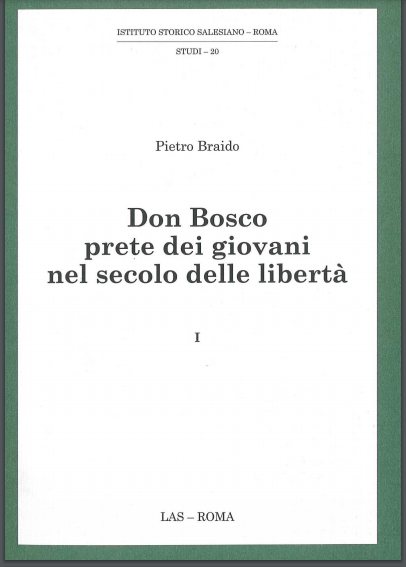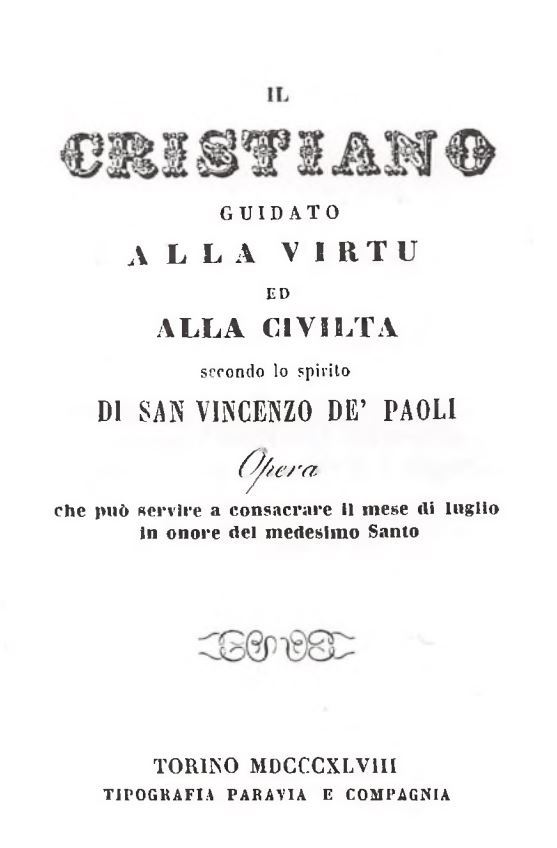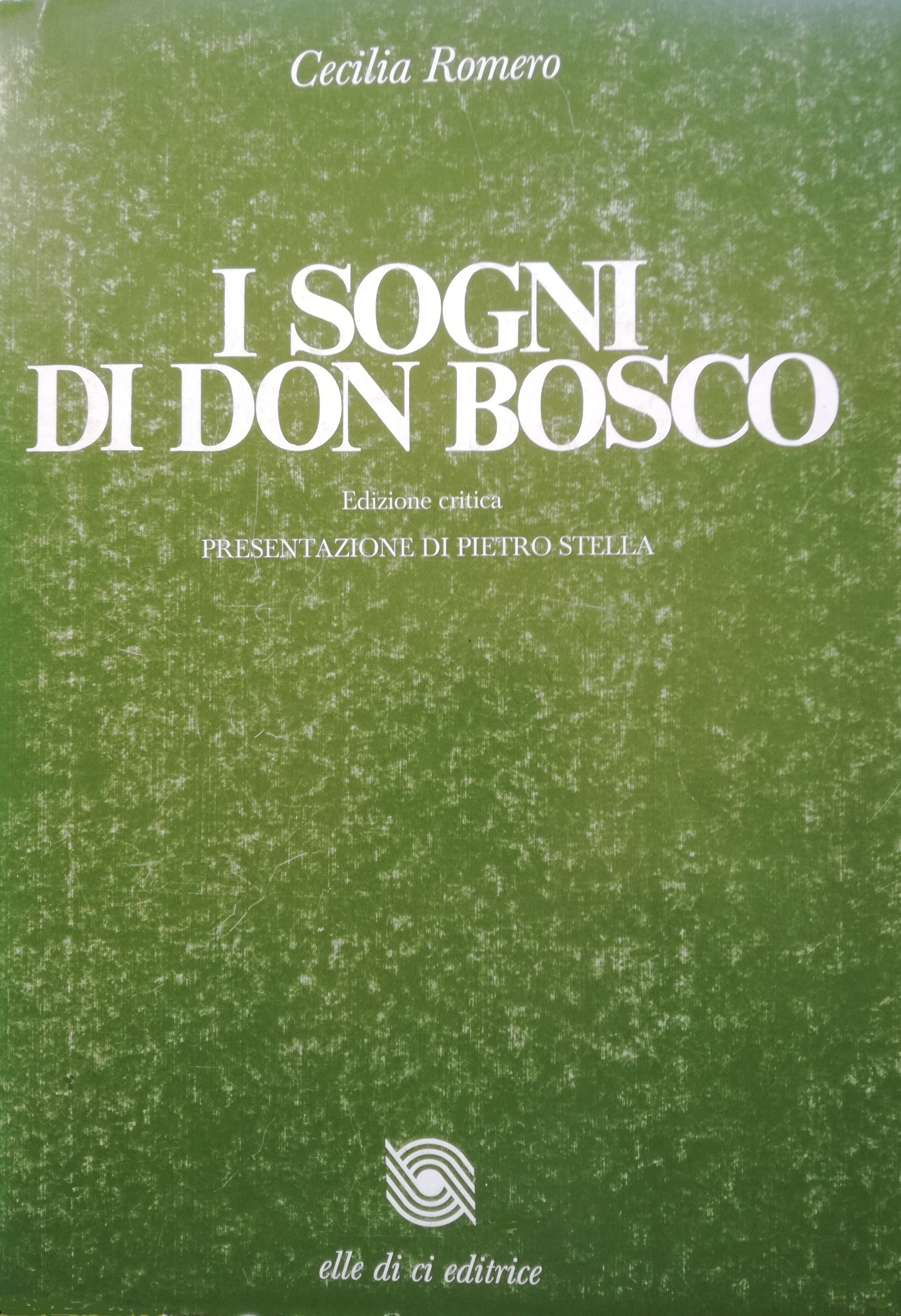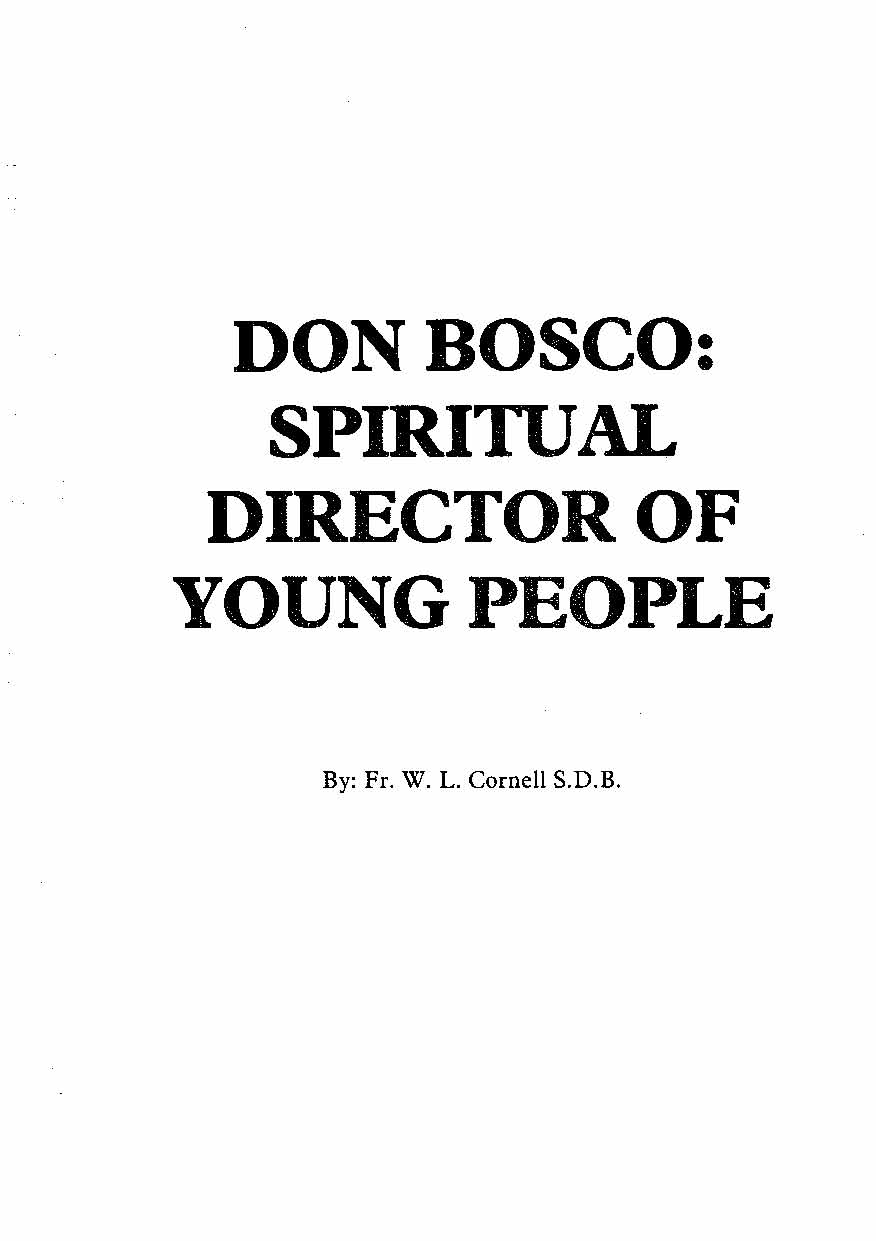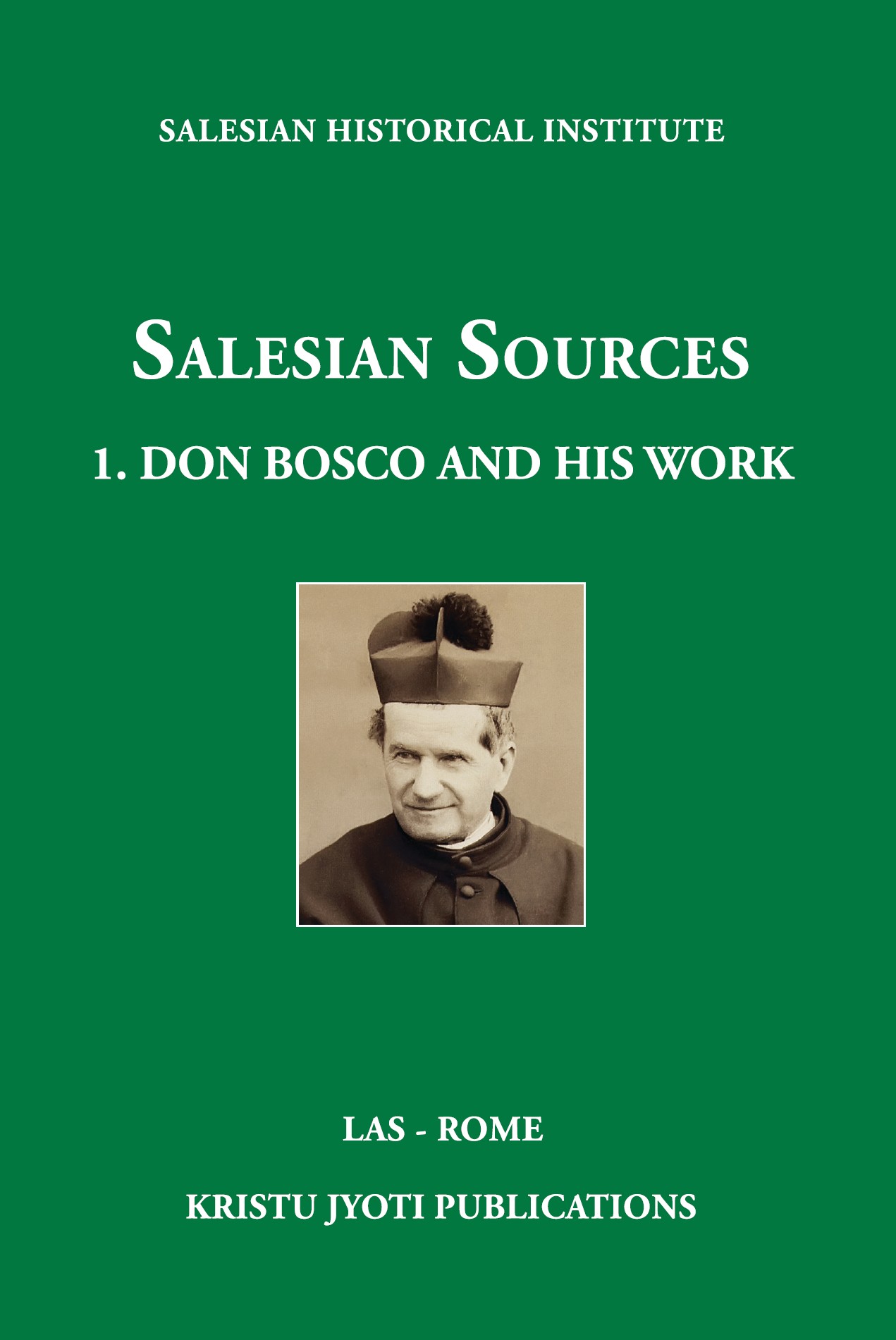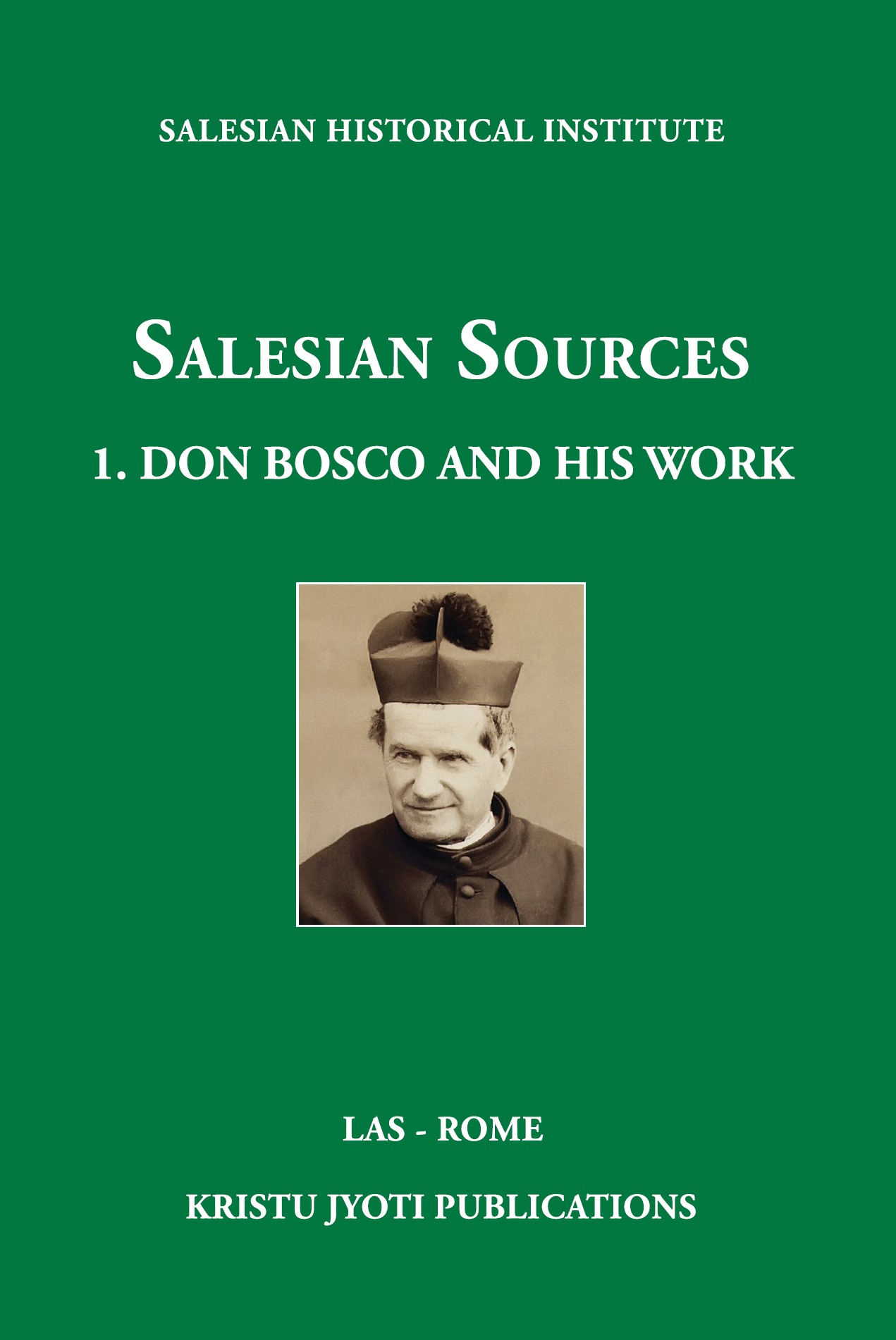If, on reading the title of this book, you are expecting to find an exposition on how to give spiritual direction to young people, you are going to be disappointed. We will search in vain, among the writings of Saint John Bosco, for such a book. Yet this Saint stands out as one of the most remarkable spiritual directors of the young in the history of the Church. Facts bear out this statement – it is not just an exaggerated manifestation of hero worship. Can we find, among his writings, how he approached this task of spiritual direction? Yes. This anthology has been put together for this very purpose and some indications of the riches contained have been given. A close and prayerful reading will help the reader ta discover many more. Continue reading “Wallace Leon Cornell – Don Bosco: Spiritual Director of Young People [An Anthology]” →

